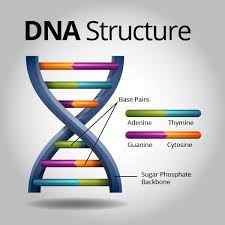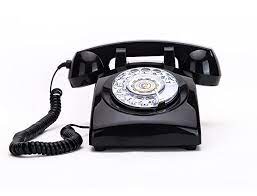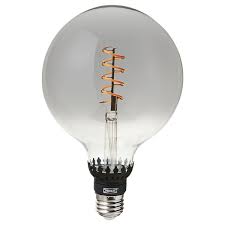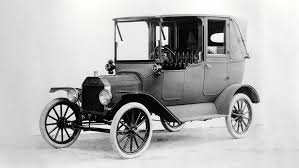Difference between Discovery and Invention?
JEE Mains & Advanced
Discovery and invention are two concepts that are often used interchangeably, but they have distinct differences. A discovery is the recognition of something that already exists in nature or in the universe, while an invention is the creation of something new through human ingenuity and effort.
How Do You Differentiate Between Discovery and Invention?
Understanding the difference between invention and discovery can be simplified through examples, but it is crucial to have a solid grasp of the basic concepts in order to fully comprehend more complex ideas.
| Discovery | Invention |
| "Discovering," is the act of finding or discovering something that already existed but was not previously perceived. |
"In contrast," the invention refers to the creation or designing of an item or process that has never existed before, utilizing one's own ideas and developments. |
| "Similarly," discoveries are the act of coming upon something that was not acknowledged or known before. | They are developing something original and advanced. |
| Discoveries are usually natural occurrences | They are scientific or human-made occurrences of objects |
| Discoveries involve exploration | Inventions are experimentation |
| "Additionally," discoveries can be made both purposely or accidentally. | We do inventions purposely. |
| Discoveries are pre-existent | Inventions are non-existent |
| A patent is not possible. | A patent is possible. |
"Furthermore," another key difference between discovery and invention is that discoveries are passive and happen without human intervention, while inventors actively seek to create something new. "Specifically," a discovery is something that is found by chance or through observing natural phenomena, while an invention is something that is created through human effort.
Is discovery and invention the same? Why or Why not?
No, discovery and invention are not the same.
Discovery refers to the act of finding something that already exists, often by accident or through observation. It involves uncovering previously unknown information or facts about the world around us.
Invention, on the other hand, involves creating something new that has never existed before. It involves coming up with an idea, designing it, and bringing it to reality through a process of problem-solving and creativity.
In short, discovery is about finding what already exists, while invention is about creating something new.
What is discovery and example?
Discovery: A discovery is the process of finding something new or previously unknown. In a scientific context, discovery refers to the observation and identification of a previously undiscovered phenomenon, principle, or law of nature. Discoveries can be accidental or the result of systematic research and investigation. They can also be made by individuals or teams of researchers.
Example: One example of a scientific discovery is the discovery of DNA structure by James Watson and Francis Crick in the 1950s. They used X-ray diffraction images of DNA fibers taken by Rosalind Franklin to build a model of DNA structure, which they found to be a double helix. This discovery was a groundbreaking moment in the field of molecular biology and paved the way for further research into genetics and the understanding of how traits are passed from one generation to the next.
Example of discovery
Here is an example of a discovery:
- Discovery of Penicillin: In 1928, Scottish scientist Alexander Fleming discovered that a mold called Penicillium notatum had contaminated one of his petri dishes and was inhibiting the growth of bacteria. This discovery led to the development of penicillin, one of the first antibiotics, which revolutionized the treatment of bacterial infections and saved countless lives.
- Discovery of the Structure of DNA: In the 1950s, James Watson and Francis Crick used X-ray diffraction images of DNA fibers taken by Rosalind Franklin to build a model of DNA structure, which they found to be a double helix. This discovery was a groundbreaking moment in the field of molecular biology and paved the way for further research into genetics and the understanding of how traits are passed from one generation to the next.

- Discovery of the Higgs Boson: In 2012, scientists at CERN's Large Hadron Collider announced the discovery of the Higgs boson, a particle that is thought to give other particles mass. This discovery confirmed the existence of the Higgs field, a field of energy that permeates the universe and gives particles their mass, and was a major breakthrough in our understanding of the universe.
Characteristics of Discovery
The following are some of the key characteristics of discovery:
- Unexpected: Discoveries are often made by accident or through the observation of unexpected results. They are not the result of deliberate or intentional effort.
- New and Previously Unknown: Discoveries reveal something that was previously unknown or not fully understood. They add new information to our knowledge base.
- Based on Observation and Analysis: Discoveries are typically based on observation and analysis of natural phenomena, often through scientific experiments or research.
- Groundbreaking: Discoveries can be groundbreaking, leading to new insights and advancements in a particular field of study.
- Repeatable: Discoveries are usually repeatable, meaning that the observed phenomenon or principle can be verified by other scientists through their own experimentation and observation.
- Independent of Intent: Discoveries are not dependent on the intent or goals of the person or team making the discovery. They are not created with a specific end-result in mind, but are instead found through observation and analysis.
What is invention and example?
Invention: An invention is the creation of a new device, method, or process that solves a specific problem or satisfies a particular need. Inventions are typically the result of deliberate and intentional effort, often involving significant research, development, and testing. Inventions can be designed and developed by individuals or teams and are usually patented to protect the inventor's intellectual property.
Example: One example of an invention is the personal computer. The first personal computers were developed in the 1970s and 1980s, and they revolutionized the way people work, communicate, and access information. Personal computers were invented to meet the needs of individuals and businesses for a more accessible and user-friendly computing experience, and they continue to play a major role in our daily lives today.
Examples of Invention
Here are a few examples of inventions:
- The telephone: Invented by Alexander Graham Bell in 1876, the telephone revolutionized communication by allowing people to speak to each other over long distances using a telephone network.

- The light bulb: Invented by Thomas Edison in 1879, the light bulb made it possible to light homes and businesses at night, greatly improving productivity and quality of life.

- The automobile: The first practical automobile was invented by Karl Benz in 1886, and it greatly improved transportation, making it easier and faster to travel long distances.

- The airplane: The Wright brothers, Orville and Wilbur, are credited with inventing the airplane in 1903. The airplane revolutionized transportation by allowing people to travel great distances quickly and efficiently.

Characteristics of invention
The following are some of the key characteristics of invention:
- Deliberate and Intentional: Inventions are the result of deliberate and intentional effort, often involving significant research, development, and testing. They are not accidental or the result of observation and analysis.
- Solves a Problem or Satisfies a Need: Inventions are designed to solve a specific problem or satisfy a particular need. They are created with a specific end-result in mind.
- Unique and Novel: Inventions are unique and novel creations that are often protected by patents to prevent others from using the same idea or device.
- Requires Creativity and Innovation: Inventions often require creativity and innovation to develop something new and useful.
- May Involve Collaboration and Teamwork: Inventions can be the result of collaboration and teamwork between individuals or organizations, bringing together diverse skills and expertise.
- Can Have a Significant Impact on Society: Inventions can have a significant impact on society, transforming the way we live, work, and communicate.
Frequently asked Questions?
Q.1 What is the difference between discovery and innovation?
Answer.
| Discovery | Innovation |
| They are either purposely or accidently. | We do inventions purposely |
| They are pre-existent | Inventions are non existent |
| A patent is not possible | A patent is possible. |
Q.2 List of discovery and inventions?
Answer
| Invention/Discovery | Name of the inventor | Year of invention |
| Automatic Calculator | Wilhem Schickard | 1623 |
| Air Conditioner | Willis Carrier | 1902 |
| Anemometer | Leon Battista Alberti | 1450 |
| Animation | J. Stuart Blackton | - |
| Aspirin | Dr. Felix Hoffman | 1899 |
Q.3 Are invention and discovery synonyms?
Answer We discover what before existed ,though to us unkown , we invent what did not before exist . Nowadays, invent and discover are rarely if ever confused and do not call for usage guidance.
Q.4 What is Discovery?
Answer We can define discovery as the recognition of something that already exists as something new. Discoveries usually occur when we find something for the first time ever.
Q.5 What is an Invention?
Answer We can define invention as the creation of something new through one’s knowledge, hard work, and skills. , the invention is the fabrication of something new entirely that can have its own uses and functions in the modern world
To learn more concept and prepare for JEE, NEET, Class 8,9,10 download eSaral app
